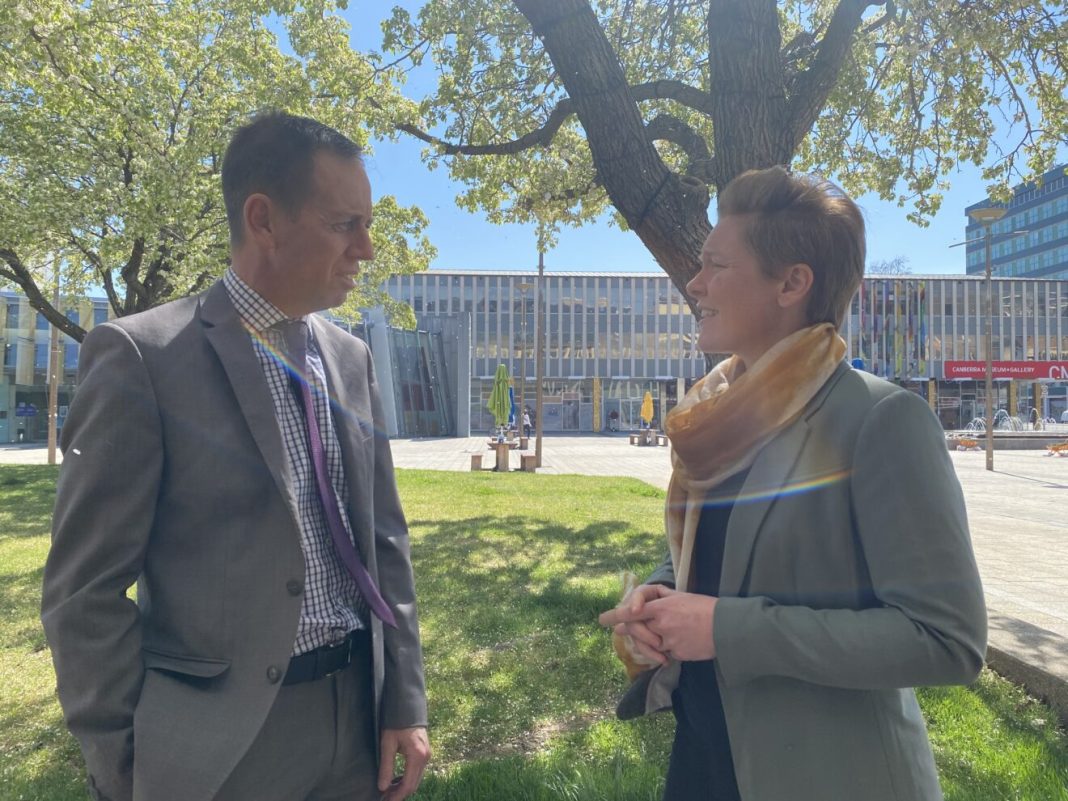‘Gathering Momentum’, Australia’s first conference exploring how intermediaries support vulnerable people within the justice system, opens tomorrow, and will spotlight the ACT’s innovative work in this field, Attorney-General Shane Rattenbury said.
The ACT established an intermediary team four years ago, and in early 2024 became the first Australian jurisdiction to formally recognise and address the unique needs of vulnerable accused individuals.
“The ACT has been a leader in recognising the importance of intermediaries in ensuring fair and equitable access to justice for all,” Mr Rattenbury said. “This conference reflects our ongoing commitment to supporting vulnerable individuals throughout the legal process and learning from best practices worldwide.”
The conference, sponsored by the ACT Human Rights Commission, is online and invite-only.
“This conference is an opportunity for our ACT intermediaries to learn from and collaborate with renowned experts from jurisdictions around the world,” Heidi Yates, ACT Victims of Crime Commissioner, said.
“Similarly, it is an opportunity for the ACT Program to demonstrate its remarkable achievements, including its work as the first Australian jurisdiction where intermediaries are working to facilitate the communication of vulnerable accused.”
International experts will discuss ways of ensuring justice is accessible and understandable for everyone. Those attending include the Hon. Lucy McCallum, Chief Justice of the ACT Supreme Court; Professor Penny Cooper, a world-leading expert who has supported the development of many Australian intermediary schemes; and Dr John Taggart, a socio-legal scholar at Queen’s University, Belfast, who, along with Professor Cooper, assisted with the expansion of the ACT program .
Presentations and panel discussions will cover:
- The impact of vulnerability on communication and understanding within legal proceedings;
- Best practices for intermediaries in building rapport and trust with vulnerable individuals;
- The role of intermediaries in facilitating effective participation in the legal process;
- The legal and ethical frameworks surrounding intermediary work; and
- Future directions for intermediary services in Australia.
Ms Yates said the conference would facilitate discussions about ensuring “all witnesses, victims and defendants can understand, speak, and be heard in the legal process, regardless of ability, age, or circumstances”.
“As skilled professionals who bridge the gap between the law and those it serves, intermediaries are crucial to achieving this goal,” Ms Yates said.
In a case study highlighted in the ACT Human Rights Commission’s 2022-23 annual report, for instance, the Territory’s intermediary team helped the police to interview a complainant in an alleged sexual offence matter.
The complainant had communication needs relating to mental health, trauma, unclear speech, and an acquired brain injury. The intermediary assisted police to develop visual aids which enabled the complainant to effectively determine a timeline of events.
Recommendations such as these have enabled vulnerable individuals to engage in criminal justice processes tailored to their communication needs, Ms Yates said.



